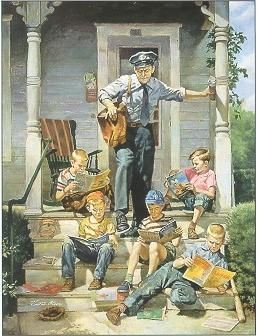Literacy Blogs
- All
- 3-cueing
- academic learning time
- academic vocabulary
- accommodations
- accountability testing
- Active View of Reading
- adolescent literacy
- afterschool programs
- alphabet
- amount of instruction
- amount of reading
- argument
- assessment
- auding
- author awareness
- automaticity
- balanced literacy
- beginning reading
- Book Buddies
- Book Flood
- challenging text
- classroom organization
- close reading
- coaching
- cohesion
- Common Core State Standards
- complex text
- comprehension strategies
- content area reading
- context analysis
- curriculum materials
- Daily 5
- decoding
- departmentalization
- DIBELS
- dictionary skills
- digital texts
- disciplinary literacy
- dyslexia
- early interventions
- effective teachers
- Emily Hanford
- executive function
- family literacy
- fingerpoint reading
- foundational skills
- graphic novels
- guided reading
- heterogeneous grouping of students
- homework
- improving reading achievement
- independent reading
- independent reading level
- informal reading inventories
- informational texts
- instructional level
- invented spelling
- jigsaw instruction
- knowledge
- leadership
- learning disabilities
- Lexiles
- linguistic comprehension
- listening comprehension
- literacy charities
- literacy policy
- literary interpretation
- main idea
- morphology
- motivation
- narrative text
- National Early Literacy Panel
- nonsense words
- oral language
- oral reading fluency
- paraphrasing
- Pause, Prompt, Praise (3P)
- personalized learning
- phonemes
- phonemic awareness
- phonics
- press and media
- principals
- prosody
- Readers' Workshop
- reading comprehension
- reading disabilities
- reading intervention
- reading levels
- reading models
- Reading Recovery
- reading research
- reading skills
- reading strategies
- reading to children
- reading wars
- reading-writing relations
- remedial reading
- rereading
- Response to Intervention
- Scarborough's Rope
- science of reading
- seatwork
- semantics
- sentence comprehension
- sequence of instruction
- set for consistency
- set for variability
- shared reading
- shared reading
- sight vocabulary
- simple view of reading
- Simple View of Reading
- small group instruction
- social studies
- sound walls
- Special Education
- speech-to-print phonics
- spelling
- stamina
- summarizing
- Sustained Silent Reading
- syllabication
- syntax
- syntax
- testing
- text complexity
- text interpretation
- text reading fluency
- text structure
- theme
- think-pair-share
- trauma
- visualization
- vocabulary
- word walls
- writing
- zone of proximal development (ZPD)
On Science Reading, Informational Text, and Reading Pullout Programs
Question: I came across your article Informational Text: Or How Thin Can You Slice the Salami and wanted to reach out to you. I'm analytical and I work with other analytical thinkers. But I am also surrounded by reading specialists, literacy coaches, etc. who think differently. When I visit schools, I observe students who are analytical. They're interested in facts and the world. They prefer expository books to narrative nonfiction or fiction. I'm concerned that young analytical thinkers are being underserved by literacy educators, who are more comfortable with narrative writing. Shanahan responds: Your letter came at a very good time. Recently, I’ve been working ...
Should We Test Reading or DIBELS?
Teacher question: I teach first-grade and this year I switched schools. In my previous school, we tested our students with DIBELS three times a year. The idea was to figure if the students were having trouble with decoding so that we could help them. That isn’t how my new principal does it. He has us giving kids a reading comprehension test with leveled books. I asked him about it and he said that the district didn’t care about DIBELS and he didn’t care about DIBELS (he only cares about how kids do on the ____ test). I’m confused. I thought the ...
The New Reading Program Implementation Blues
Teacher question: I am a reading coordinator. We are in our first year of implementing a new reading program. As we have rolled out the new curriculum, we've been explicit about the reading instructional practices and routines that we expect to see used each day. We’ve had lots of PD. How else are we going to know the impact that the series has on our achievement data if we don't have fidelity our first year? That's the direction that we've taken. I'm sure that you appreciate the “change” process. We've changed a lot of behaviors but I'm afraid that we haven't changed a lot of beliefs of teachers about reading instruction. Our mid-year reading performance data ...
More Bad Ideas about Why We Should Avoid Complex Text Reading Instruction
Welcome to 2018. During the interim, several intriguing questions have been submitted and soon I’ll be taking those on. This posting responds not to your questions, but to some public comments made by various colleagues concerning complex text and its use in instruction. My comments are responses to their handwringing over the requirement that we teach kids to read complex text. We should be concerned about the use of complex text for instruction because text complexity has a negative correlation with reading comprehension and reading fluency. The premise here is correct, but the conclusion is false. This is what logicians refer to as the ...
Have a Happy and Literate Holiday
No blog today, just holiday greetings. Wishing you and yours a wonderful and literate Christmas, Chanukah, Kwanzaa, and New Years. Thank you for following my blog. I look forward to our continued relationship in the coming year.
What's the Difference Between Close Reading and Teaching Complex Text?
Teacher question: Aren’t “teaching with complex text” and “teaching close reading” really the same idea, just in different words? Some of my teachers are confused by these terms. Some of them, like me, think they are the same idea, while others think they are really two different standards. How can I clarify this for them? Shanahan response: I must admit that the first time this confusion presented itself to me, I was pretty darned surprised. I was supposed to make two presentations to some California teachers—an AM and a PM talk, and the reading supervisor wanted to know the two titles. I suggested one ...
What Does Listening Capacity Tell Us about Reading?
Teacher question: I was wondering if you are able to provide me with a clearer understanding of what a “silent Reading and Listening Capacity Test” is all about. Shanahan responds: The whole idea of administering silent reading and listening capacity tests is two-fold. A silent reading test would be used to determine how well a student can comprehend text when reading silently. Typically, such a test would be administered using graded or leveled passages. Thus, if the student could read the fourth-grade passages with 75% or higher comprehension, but could only read the fifth-grade passages with 50% comprehension, we might say something like, ...
Time for Literacy Charity
It is that time of the year again. For the past five years, I have devoted one blog posting to encouraging readers to support literacy charities. I know many of you do so much to teach and promote reading and writing, and I applaud your good works. It only seems fitting that your charitable giving be aligned with your admirable personal and professional efforts on behalf of literacy. Each year, I have provided a list of international and national (or at least multi-regional charities) that support literacy teaching or provide books to needy populations. I lack the resources to vet all the wonderful local charities that do this kind ...
Time to Tell Parents the Truth about Helping their Kids with Reading
Blast from the Past: First posted November 26, 2017 and re-posted April 24, 2020. Parent involvement in their children's learning is always important. However, during this pandemic that responsibility becomes imperative. In some cases, this responsibility can be best met by making sure the kids' are logged on for distance learning with their regular classroom teachers. Unfortunately, that isn't universall available or might not be working well. That's where this blog entry may be helpful. It lays out some very basic things parents can do to help. Keep it enjoyable. Be safe. Teacher question: Our schools have recently sent the home reports ...
Are read-alongs (round robin, popcorn) a good idea?
Blast from the Past: This blog posted on November 19, 2017, and was re-posted May 21, 2022. I would love to say that its original posting ended the practice of round robin reading. Alas, too many teachers continue to cling to the practice – main, I suspect, because they know not what else to do. And, at least some of the teachers who do manage to eschew the practice try to rely solely on silent reading, which is just not sufficient (monitoring students’ oral reading progress is informative, particularly in the primary grades). This blog may be worth a second ...









